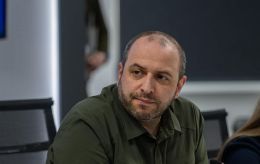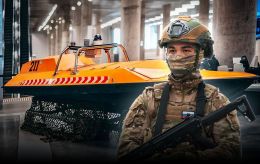'Russia is defending Donbas from NATO.' Interview with Ukraine's traitor
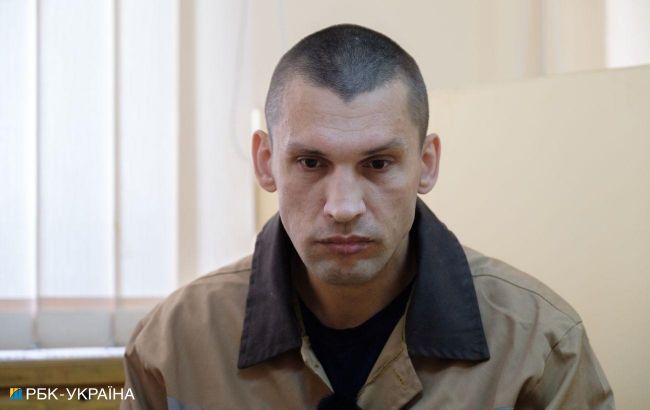 Convicted Oleksandr Fomych (all photos: Vitalii Nosach/RBC-Ukraine)
Convicted Oleksandr Fomych (all photos: Vitalii Nosach/RBC-Ukraine)
A resident of Ukrainian Chasiv Yar, Oleksandr Fomych, provided information on the location of the Ukrainian Armed Forces to the Russians in 2022. He was caught by the Security Service of Ukraine (SBU) and sentenced to 15 years in prison. Why he decided to help the enemy, what he did in 2014, and how he justifies Moscow – in an interview with RBC-Ukraine.
For decades, Russia tried to instill various complexes in Ukrainians, including an inferiority complex. The main narrative that was constantly repeated was that Russians were "brothers" to Ukrainians, with the peculiar assertion that they were somehow the older siblings. Along with this, phrases were often used suggesting that Ukraine essentially existed at Russia's expense and that modern Ukrainians owed everything to the Soviet Union.
At the same time, Russian content flooded the agenda, filling Ukrainian TV screens with Russian-produced TV series, films, songs, and programs. However, the events of 2014 forced many Ukrainians to reconsider their relationship with Russia. It stopped being seen as a friendly nation and became perceived as an aggressor state. Those who still believed in the militia in Donbas were convinced by Russia's full-scale invasion in 2022.
Despite the ongoing large-scale war with Russia, there are still people in Ukraine who believe in Russia's good intentions and are willing to help the enemy. One such person is 35-year-old Oleksandr Fomych. In 2014, living in Chasiv Yar, he decided to join the ranks of the militia, for which he later served five years in prison. In 2022, he, still holding onto his principles and beliefs, once again lent his help to the occupiers. A few months after the invasion, Fomych and his wife were passing on information about the location of the Ukrainian Armed Forces. For this, Oleksandr was charged with treason and sentenced to 15 years in prison.
Today, Fomych is serving his sentence in a correctional facility in the Zaporizhzhia region. He denies that Russia is killing innocent civilians, and when it's no longer possible to deny, he justifies it. In his paradigm, Russian soldiers are defending Ukraine from NATO, the European Union, and Ukraine itself. During a trip to Zaporizhzhia, facilitated by the security services, RBC-Ukraine managed to speak with Fomych about how he came to assist the enemy and what his future life holds.
Bad EU and good Russia
The Zaporizhzhia prison is located not far from the regional center — grey blocks of buildings surrounded by barbed wire and a watchtower. The head of the prison meets us and leads us through the corridors. "Convict Fomych Oleksandr Vitaliyovych. A purely ideological guy. Exactly the one you wanted."
In the green-painted corridors, the smell of bleach lingers, and each block ends with bars that open, let us in, and immediately close behind us. We flinch slightly, and the warden, patting the photographer on the shoulder, says, "It’s cozy here, isn’t it? We even grow roses."
We are led into the visitation room. It’s a bright space divided into sectors, with a soft corner in each sector, similar to those once placed in kitchens, and a table. While we set up the cameras, Fomych is brought into the room. His gaze keeps drifting somewhere below our faces, and his manners are stiff and minimal. We greet him, introduce ourselves, and ask him to sit down.
– What was your childhood like?
– Like everyone else’s. Fun, exciting.
– Did you continue your education after school?
– I went to vocational school to become an electrician. Everyone in our town worked at the refractory plant, so we decided we’d work there too.
– Did you plan to move out of the city?
– No, never. I was happy with my city.
– In 2014, when the events started, what were you doing?
– I worked like everyone else. But I worked unofficially because the plant was closed. I moved around Ukraine doing construction and repairs.
– How did you react to the war that started?
– Very badly, I didn’t think about it. In 2014, all my friends were in favor of separating from Ukraine and creating their own republic. So, I decided to go along with them.
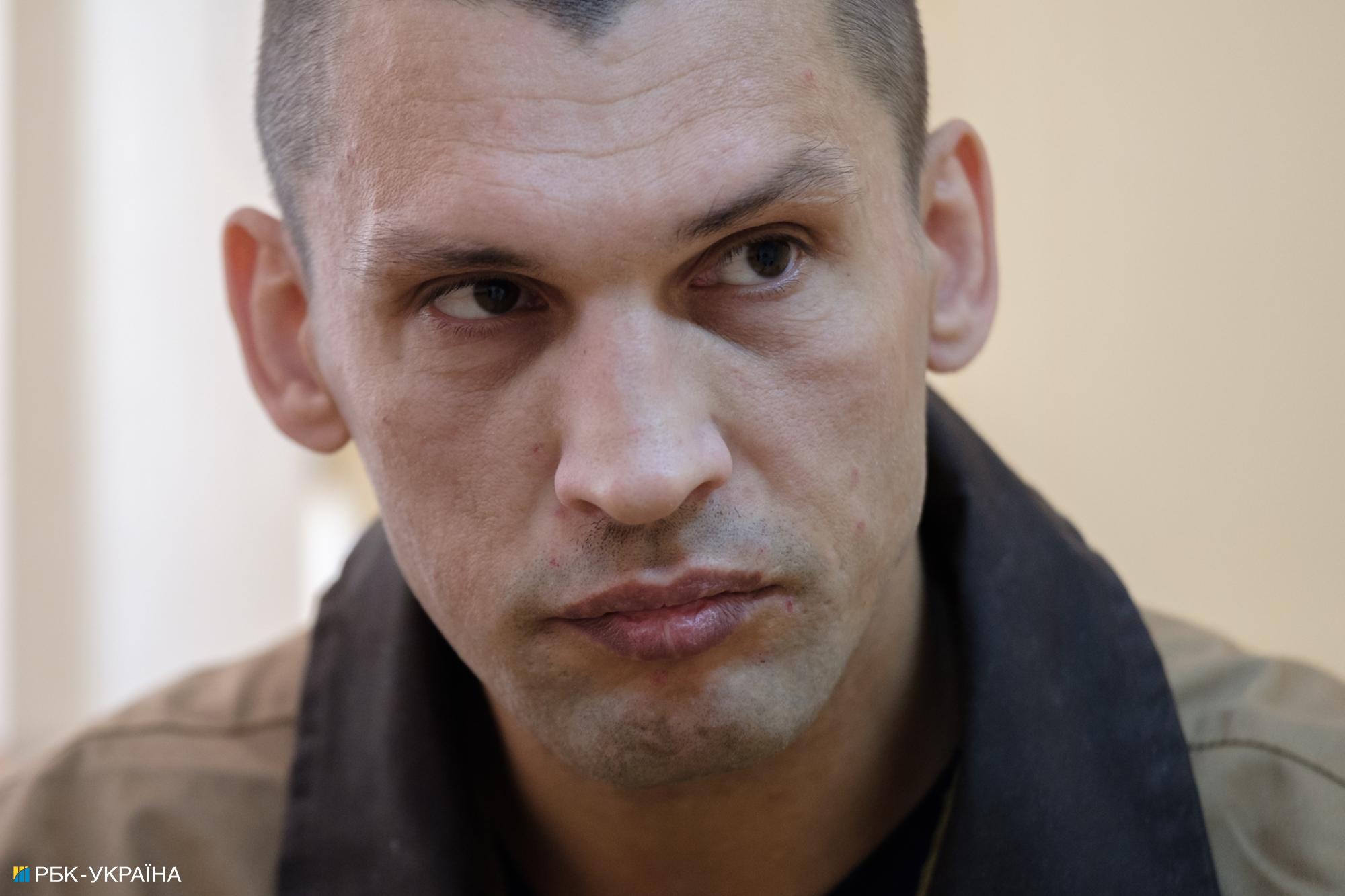
Throughout most of the conversation, Oleksandr appears detached. The prospect of being published probably holds little appeal for him. However, some topics immediately bring Fomych out of his shell. One of them is the European Union. In his view, Europe is a pit, and joining the EU would be a huge mistake for Ukraine. Needless to say, Oleksandr offers no real argument to back his opinion.
– We should have created our own country and developed our own country. If we consider ourselves independent, we should take responsibility and build our future. We shouldn’t be looking at others... You know, in our village, the older people used to say: "Don’t look at your neighbor’s garden, don’t look at what’s in someone else’s, but focus on your own." So, we should focus on our own country, on what has been happening in our country since the 90s when the USSR collapsed, with all those republics.
Everything fell apart, and what happened to our republic? What’s the result? Ruins, collapse, everything went from state property into private hands. What did we come to? A bourgeois society. If we read history, read the writers — Grabovskyi, Kotliarevsky — they mock all of this. We’ve already dived into history; we need to build something of our own, not look left or right. That’s why we decided the way we did. This country is dragging us down, and why should we fall to the bottom?
– So, the European Union is a dump?
– Of course, it’s a dump. No matter how well they live, sure, people live well in Kyiv but go to the countryside, and as they say, everything’s bad there. Ruins, people are leaving, running to the big cities. The villages are falling apart, the collective farms are gone, and in 30 years, we’ve built nothing new. That’s why we decided this way.
At the same time, when Fomych talks about life in the "young republics," there is warmth in his voice. Since 2014, they have been reviving mines and factories, rebuilding bridges and entire economic sectors. As proof, Oleksandr cites the example of utility prices in the territories under Ukrainian control compared to those in the occupied areas.
– In 2014, you decided to create a republic. What did you specifically start doing?
– That’s when I went to Sloviansk and saw everything with my own eyes, not just from the TV. I observed it myself.
– And what did you see?
– Horror.
– As far as I remember, Russian troops entered there?
– I don’t know, I didn’t see any Russian troops there. I mostly saw guys who hadn’t been shot at.
– Do you know who Girkin is?
– Strelkov, of course, I know him. Well, he’s a retired colonel of the Russian Federation.
– What was he doing in Sloviansk?
– He was commanding a bunch of ragtag fools who didn’t know anything.
– So, you went there to see it for yourself, and then what?
– I came back to my city. There, the guys started gathering some kind of militia. I decided to join. We built a checkpoint and stood at the checkpoint at the city’s entrance and exit to prevent weapons from being brought into the city. Then Ukraine launched its offensive, they kicked us out of Sloviansk, Kramatorsk...
Fomych's story is very familiar and banal – the "militia" took weapons from military units, there were no Russians in the territory, and people decided to "self-determine," but the "Kyiv regime" forbade them. After expressing his views on this, Oleksandr lets out a sigh and draws a disheartening conclusion – there is no freedom of speech in Ukraine, as the people of Donbas were not allowed to separate.
After Fomych decided to take part in the creation of the DNR (Donetsk People's Republic), he was sentenced to five years in prison. Oleksandr repeats the article under which he was arrested – for creating military formations not provided for by Ukrainian law. He was released from prison in 2019, and three years later, the full-scale war began. In Fomych’s mind, the reasons for the invasion are a whole separate world, one in which it is quite hard for an uninformed person to understand.
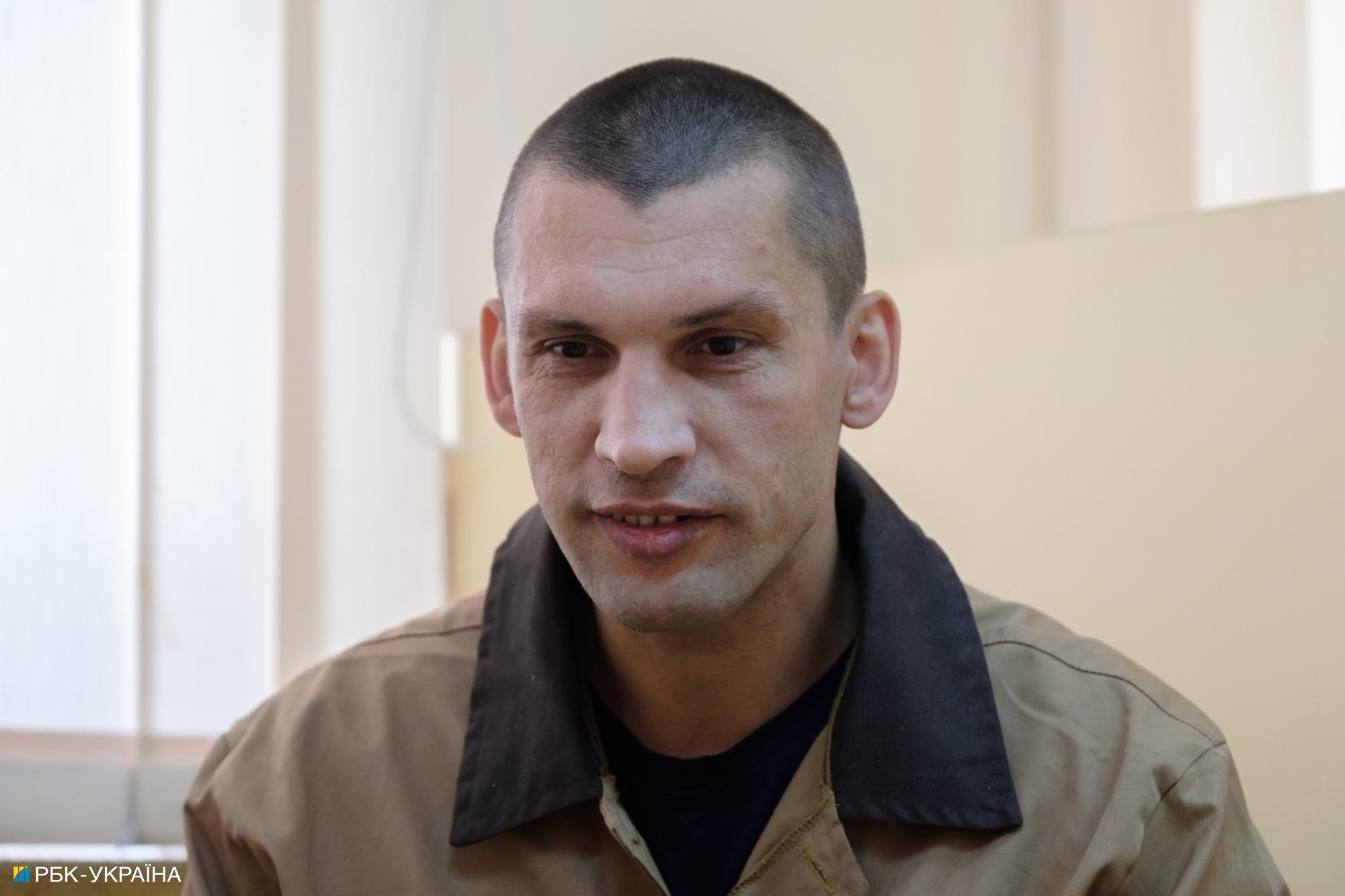
Full-scale war with Russia
– 2022, February 24, what is happening?
– Everyone sees it differently. I see that one person said a bunch of things, and violated all the laws... The current president (Volodymyr Zelenskyy – ed.) violated everything that was signed according to the Constitution.
– What did he violate?
– He said – we are joining a bloc, even though the Constitution states non-alignment, he said we will return nuclear weapons – that's two. He talked about returning nuclear weapons to Ukraine and joining NATO, even though it's stated in the Constitution under Kuchma's (Ukraine's former President Leonid Kuchma - ed.) rule, there are laws, it's all written in the Constitution – non-alignment, neutral status, and non-nuclear status.
– Suppose, but what does Russia have to do with this?
– In this case, Russia was the guarantor of our independence, our freedom, and everything else. And when we violated all this...
– What did we violate, independence because we wanted to join NATO?
– Well, we violated all the signed papers.
– And Russia came to protect us here?
– Russia certainly entered into a confrontation, these were violations against them.
– I don’t understand. Suppose we violated the laws we wrote, but what does Russia have to do with it?
– Well, they are the guarantors. They, the US, and the UK. Papers were signed that if we abide by these three conditions, then no one will attack us...
– So we violated it, and they had the right to attack?
– It seems so.
– Did we sign papers with Russia?
– Together with Russia.
– No. That didn’t happen.
Oleksandr, apparently, doesn’t fully understand what he’s talking about. The Constitution, nuclear weapons, Ukrainian rights, NATO, guarantors, and the UK – it all mixed in his mind into one confusing story. He doesn’t even argue about whether Russia is shelling cities, but he actively claims that Ukraine "attacked Donbas." Russia is shooting at Kyiv and Lviv because Ukraine shelled Kursk, and it doesn’t matter that these two events happened in reverse chronological order. If something doesn’t fit Oleksandr’s logic, he uses the universal phrase – he wasn’t there, and he didn’t see it.
– Why did the Russians do that with Mariupol? They were supposedly defending Donbas.
– Well, not just them. There’s video footage where Ukrainian tanks are also firing at homes. I have many friends in Mariupol who talk about how the Azov battalion (a military unit of the Ukrainian National Guard - ed.) was terrorizing people, how they shot at civilians, and how they blocked convoys to prevent people from fleeing from the shelling.
– So, according to your friends, everything was fine until February 24, and on that day we decided to start shelling our own cities, including Mariupol?
– I don’t know what was shelled there.
– But you’re saying that Ukrainians were firing at their own homes?
– That was in Mariupol.
– And why?
– Because there was the Russian army there.
– What was the Russian army doing in a Ukrainian city?
– Well, there were partially Russian troops there, you could say.
– Why?
– I’m saying, Ukraine wanted to attack Donetsk. So, they brought in their troops.
– To Mariupol?
– Yes.
– I see.
Oleksandr was arrested a year ago. According to the investigation, he, along with his wife, was passing on information about the location of military units, equipment, and air defense systems in his area in Chasiv Yar. In our conversation, of course, he denies everything. "There were a few pictures, we were photographing fragments with my wife," says Fomych, probably not even realizing how ridiculous his excuses sound. When asked if he would want an exchange, Oleksandr lights up.
.jpg)
Chasiv Yar after Russia's full-scale invasion (Photo: Getty Images)
– What if there was a possibility of exchange, would you go?
– I would go with both hands.
– Even though Russia attacked us?
– No! I have a lot of friends there, I have relatives. I don't see anything wrong with it. I told you.
– Do you not consider them enemies?
– No, for me they are brothers, and those who consider them enemies can do so. Everything will change eventually.
– Look, the day before we arrived in Zaporizhzhia, a rocket hit a residential building. Russia did that. Are they brothers after that?
– Well, my father died. Three rockets hit my father's house, and he was buried under the rubble.
– And who did that?
– I don’t know who did that.
He doesn’t consider this war his own and says that he is not at war with anyone. Moreover, he is surprised that he hasn’t been handed over to Russia.
– Okay, so you say Russians are brothers…
– Well, why not brothers? Tell me how many Slavic countries do you know in the world? Slavic ones, specifically? I know three.
– That doesn't change the fact that one Slavic nation attacked us.
– They are defending their interests.
– In our country?
– In our country. And what about our shared history?
– That doesn’t matter, we are an independent state.
– We have never been an independent state. We were always dependent on either the West or Russia. No matter how you look at it, that's how it was. Look around, when did Ukraine build a factory? Everything we have is the legacy of the Soviet Union.
– And does that give them the right to kill us? Because we decided to join NATO?
– This is a controversial issue with this war. One person sees it one way, another sees it another. I'll give you an interview now, say a lot about myself, and they'll come and give me a life sentence.
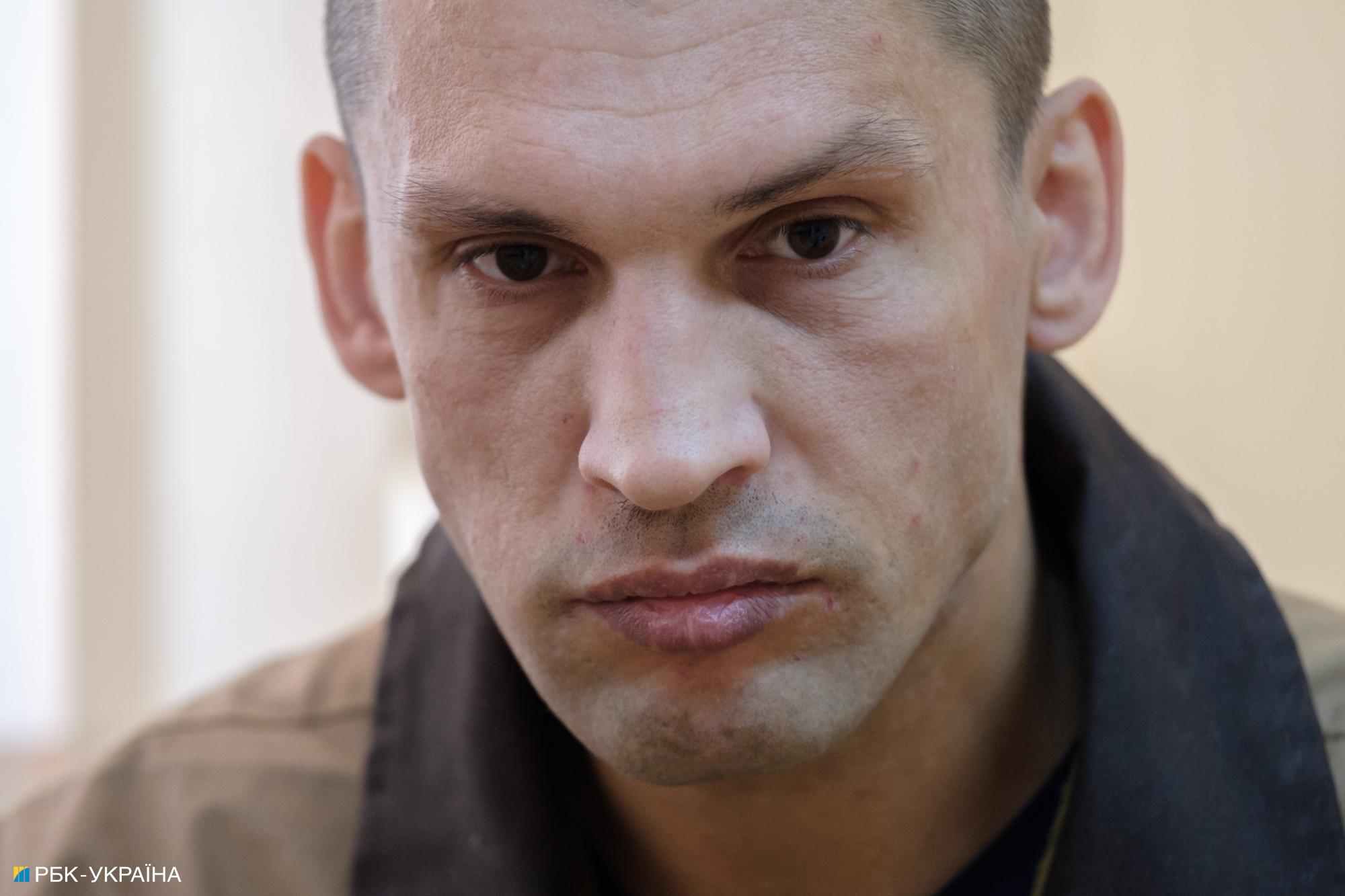
Why do the "brothers" shoot at a children's hospital in Kyiv, why are they dropping KAB (guided aerial bombs - ed.) bombs on cities, and what is the purpose of killing civilians? Oleksandr doesn't know. Anything that contradicts his logic is immediately rejected. It's either a lie, or we simply misunderstood. For Fomych, whether it's Russia or the Soviet Union, it is almost like the Ukrainian cradle from which we all came. If you strip away everything unnecessary, the core narrative is the most mediocre and banal – in Oleksandr's view, Ukraine simply has no rights.
– Should the war end with reconciliation? And who should reconcile with whom?
– Our people should reconcile. It always happens this way. After any war, there is peace. Well, did we forgive the Germans for everything they did to the Soviet Union?
– Yes, Germany lost, and 20 years later they apologized. Will the Russians apologize?
– Of course, and we will ask for forgiveness.
– And for what?
– For going in the wrong direction. There will be reconciliation.
– So, we should apologize to them for "going the wrong way"?
– Not necessarily. But to reconcile, what should we do? From your side, how? One side should reconcile, and the other just look at them with hostility?
– But they attacked us.
– Well, we need to reconcile somehow.
– And will they apologize?
– Of course.
– For what? They are protecting us.
– I don't know, we'll see. Life will show.
***
We leave the colony exhausted. The head, smiling, sees us off at the exit. "I told you, you'd like it. A broken person."
People like Oleksandr have long chosen their side and stubbornly defend it, even when it kills their parents and children. The reason is simple – accepting reality is hard. It would mean literally giving up everything they have loved for some reason, feeling disappointed, and making very uncomfortable decisions. It's much easier to continue following their own logic. Fortunately for such people, Russian propaganda creates new and new legends every day, which easily cover up all the contradictions that emerge.
